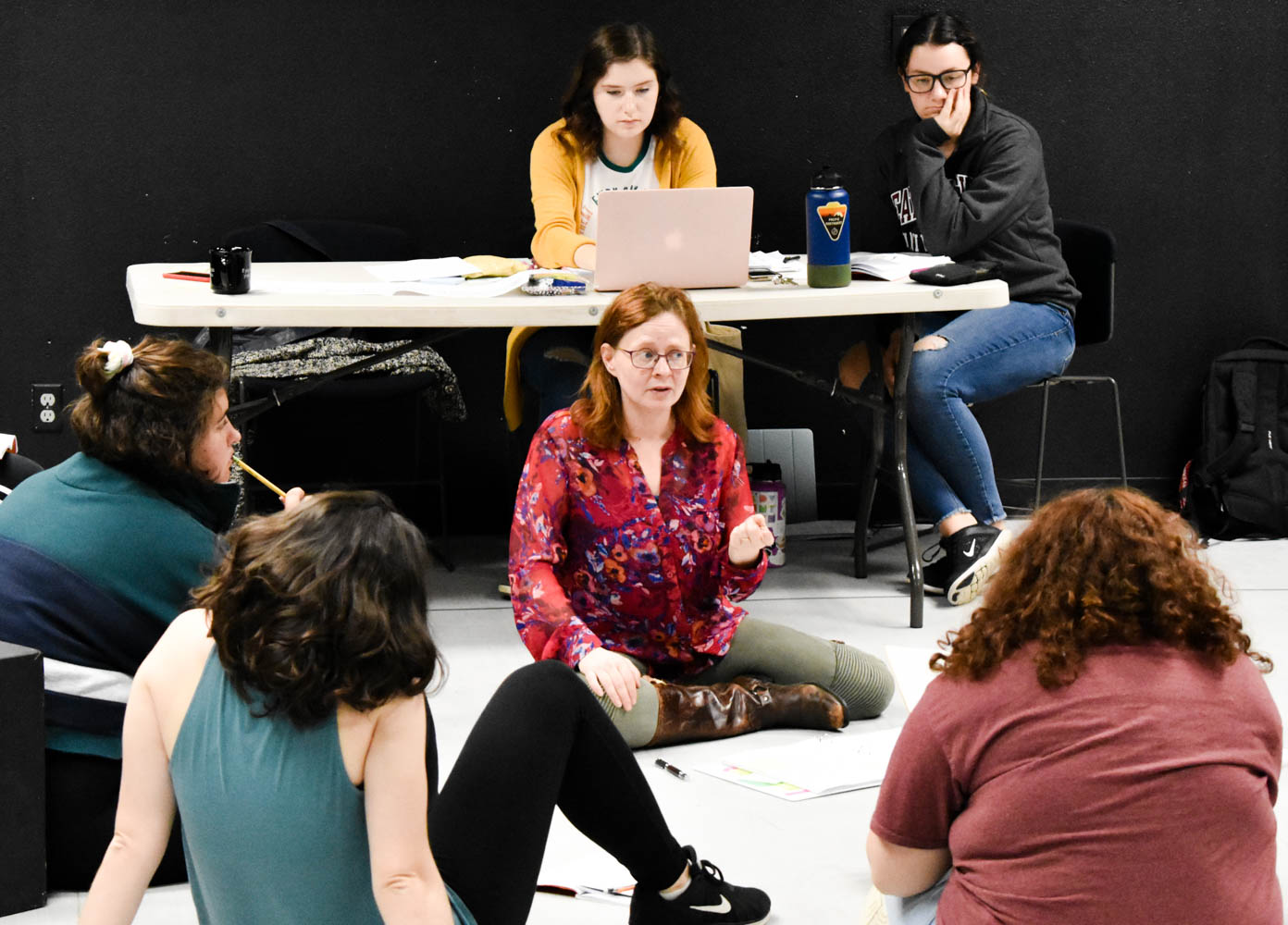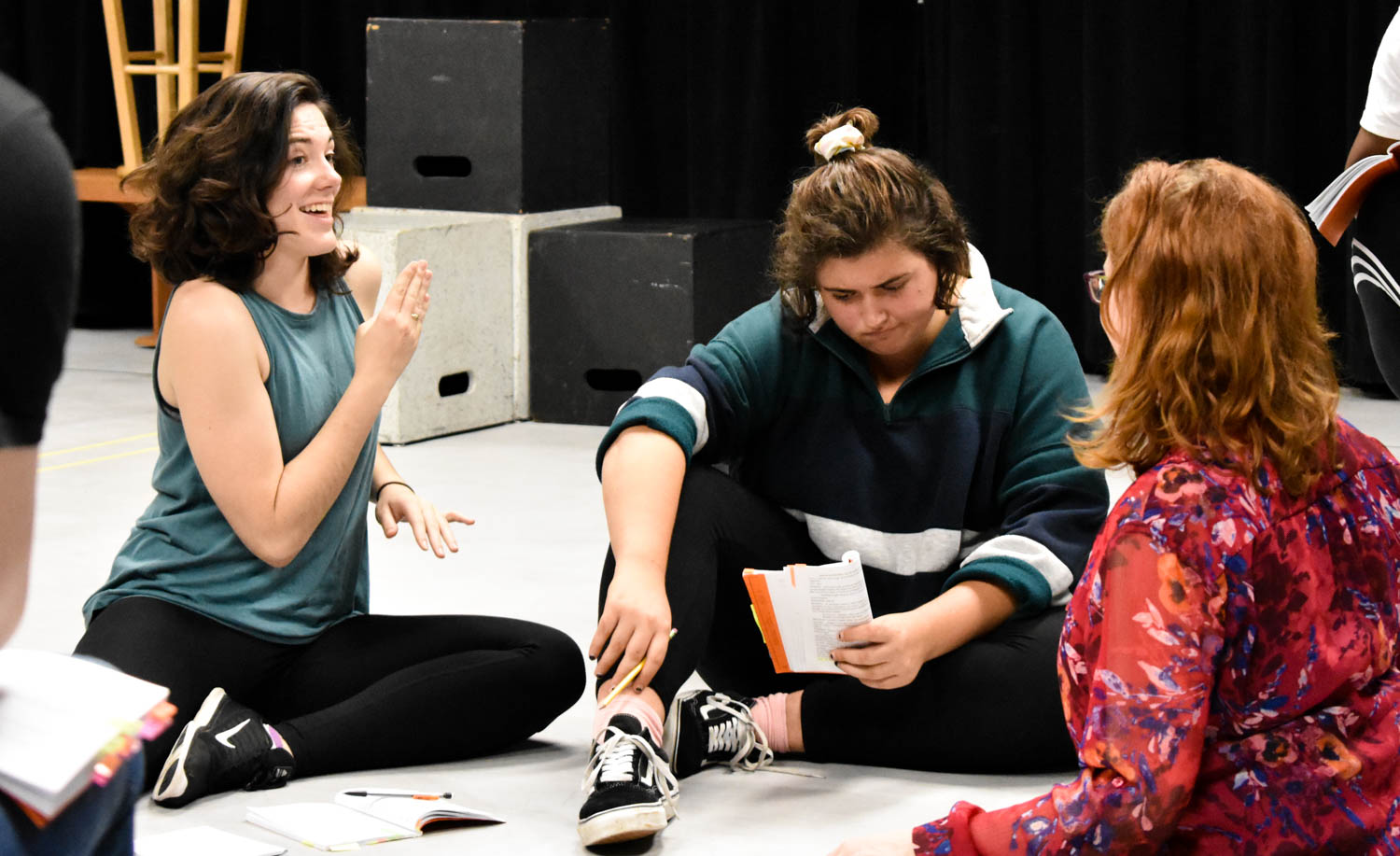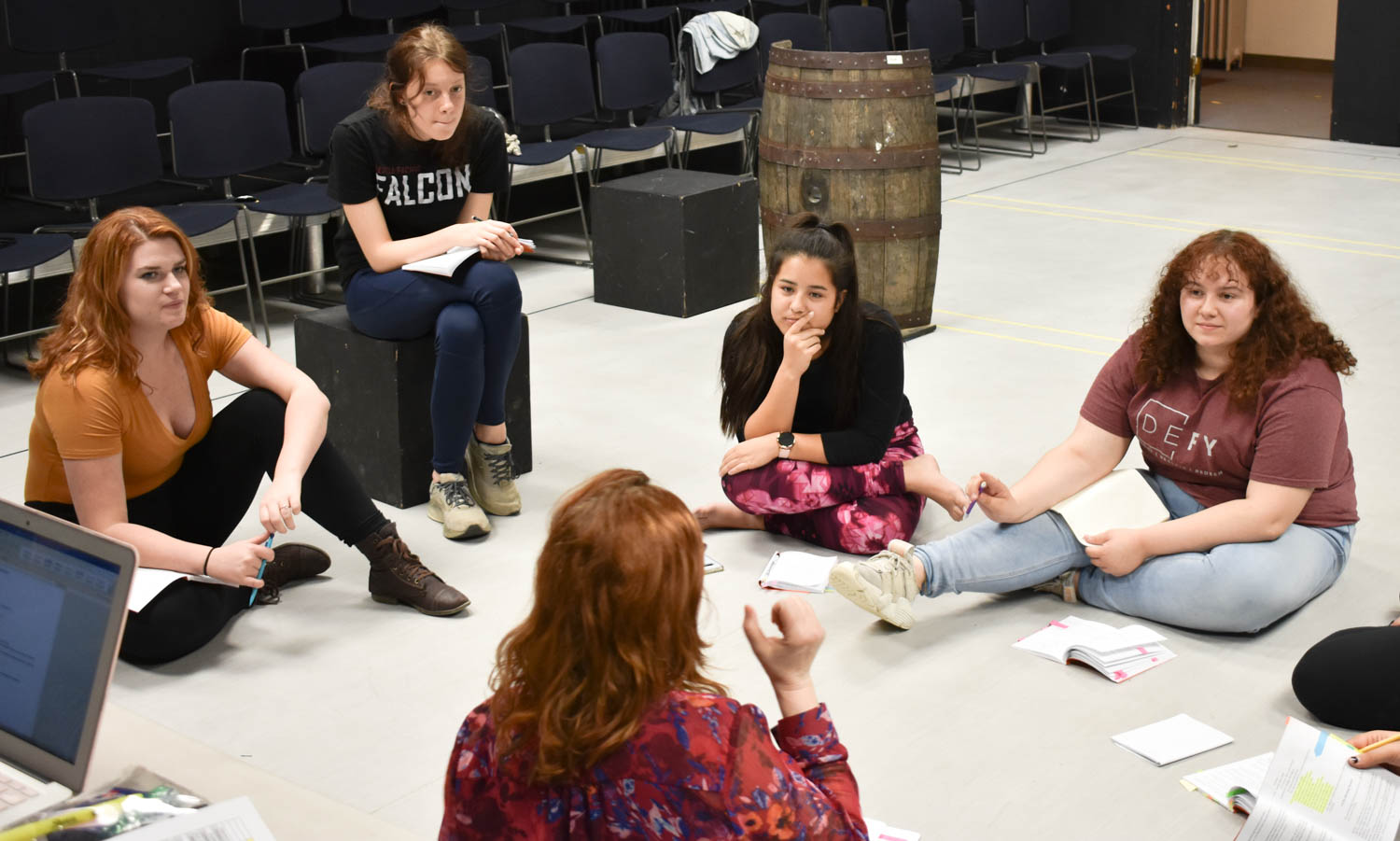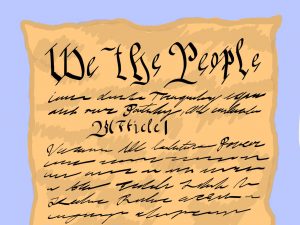Re-examining race, gender on stage
“Men on Boats” provides alternate perspective on classic expedition
November 6, 2019

Carol Roscoe, director of this Autumn’s 2019 Main-stage: “Men On Boats” speaks with the cast on character monologues.
Laughter, the sounds of stomping and cries for love of whisky echoes from the studio theatre at Mckinley Hall.
Despite what these noises may suggest, this was a rehearsal for the Seattle Pacific University theatre department’s upcoming production of “Men on Boats.” A contemporary play written by Jaclyn Backhaus, “Men on Boats” reimagines the expedition of John Wesley Powell and his ten-man crew through the rapids of the Grand Canyon.
However, “Men on Boats” subverts expectations: while every character in the play is a man, the cast is composed entirely of women.
“It’s an effort to reframe history so that we can see it in a new light and humanize these historical characters who we often glorify and see as these, you know, heroes of old,” senior Abigail Ayulo, who plays the role of William Dunn, said.
Guest director Carol Roscoe hopes that viewers are compelled to question their entire notion of ‘exploring the frontier’ by reframing the time period in which the American West was explored.
“Backhaus asks us to reconsider who these men were and what their journey was about, but also what the whole notion of frontiering and the American West and the discovery of the West (was about),” Roscoe explained.
She believes that this play encourages viewers to reflect on the past and realize that what has been defined as exploring the frontier was, instead, white Americans displacing the people who had inhabited that land for centuries.
As the viewers reflect on westward expansion, the actors have had to reflect on their modern notions of femininity.
The actors have no small task in portraying characters that are not only members of a society two hundred years removed from their own, but who are also men. In accomplishing this feat, the actors have to unlearn what it means to be a 21st century woman.
“In rehearsal, we have learned that women have these expectations to act and behave a certain way that men don’t have,” stage manager Ella Weiner said.
For the actors, this means they have to rewrite the narrative of femininity that they have consciously and unconsciously been learning throughout their lives.

The cast of “Men On Boats” improvise their scripts to the director of the play, Carol Roscoe.
“A lot of the time I have had to force myself out of certain habits. As women, we apologize a lot — more than necessary — and we soften our language,” sophomore Chloe Newton, the actor playing Major Powell, said.
The cast and crew want to emphasize that the fact that there are women playing men is not meant to be insensitive.
“It is ten women portraying ten men. It’s not gender bent or girls in drag, it’s that they’re simply portraying these men,” Weiner said.
This could be insensitive, especially if the play has comedic undertones.
“Some of the things we say are comedic, but it is not about the fact that we are women playing men. That’s not the joke. It’s the words being used that makes the joke,” Newton said.
Even though the story took place in the 18th century, the play is still modern, having commentary that fits today’s climate around gender.
“This play really fits the time period that we are in. The language is contemporary and with the cast being all females of different backgrounds, I think it is important that people see us being represented,” Newton said.
The cast also faces another challenge: the majority of the play takes place on the water.
To get some first hand experience, the cast took a trip to the Center for Wooden Boats museum in Lake Union Park. The trip helped the cast better understand the tensions between the characters.

All eyes on Carol Roscoe, the director of “Men On Boats.” The cast gravitates their attention to Carol as she provides criticism of the cast’s performances during rehearsal and gives insightful details on how to improve their performance.
“When you’re navigating a river where there’s rapids and so much danger, all you have to rely on is each other,” Ayulo said. “You cannot have that kind of conflict. So the main center of attention is this: I don’t agree with you, but I have to work with you.”
From watching the play, the cast and crew hope the audience will have a different understanding of how history is commonly told.
“It is important to remember that just because one guys name, Powell, lead the way, doesn’t mean there were not other people involved, that there weren’t other casualties, sadness and victories,” added Weiner.
Working together, the cast and crew compel the audience to re-examine history as they know it and consider how gender roles influence their own identities.
They seek to demonstrate who usually plays the major roles by giving a greater voice to women, people of color and those of differing gender identities and sexual orientations.
“The voyage could have happened to anyone, it could have been people of color or women, and it would still have the significance that it has,” Newton said.
“Men on Boats” opens Thursday, Nov. 14, and shows run until Nov. 23rd.


























































































